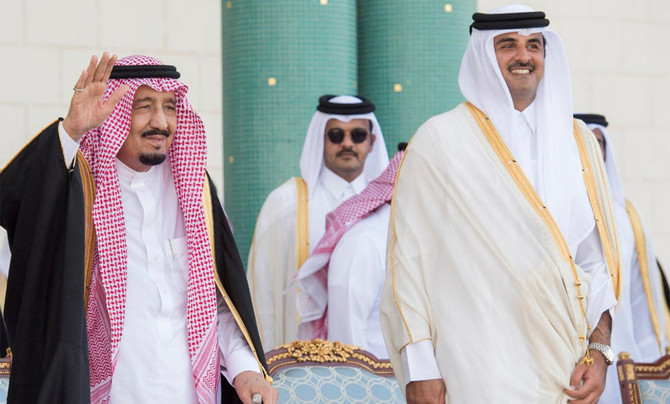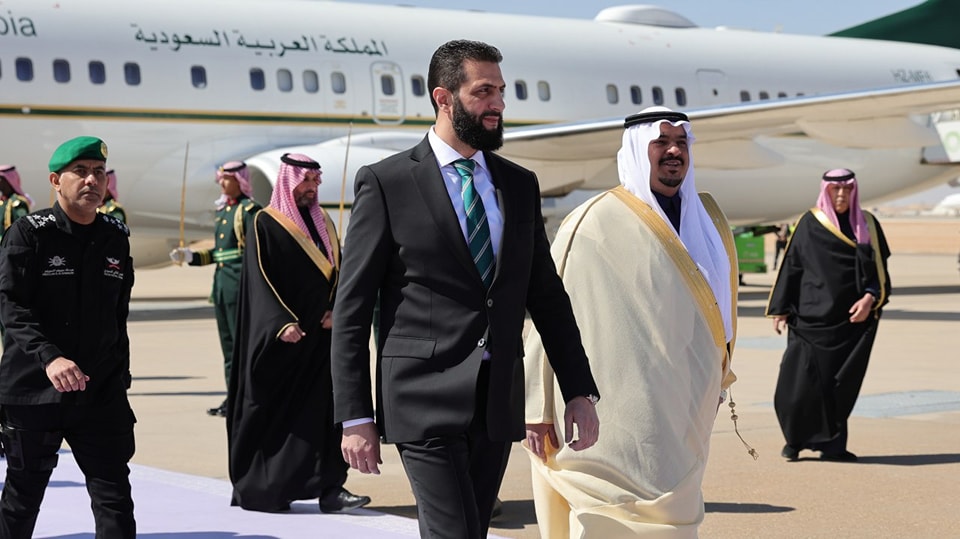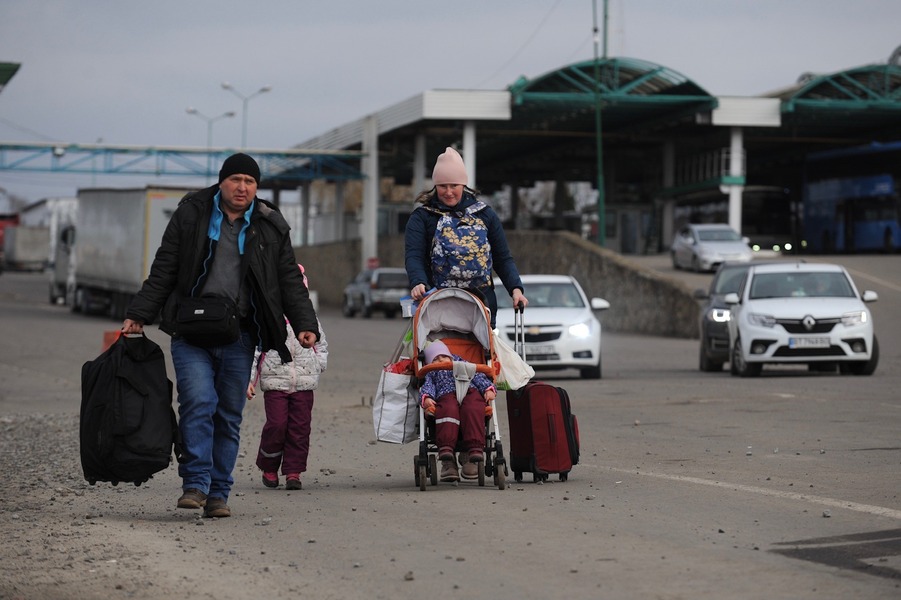On an Island: Saudi Arabia’s Relentless Obsession With Qatar Is Aiding Iran
For more than a year, Saudi Arabia and its allies—especially the United Arab Emirates, Bahrain, and Egypt, collectively referred to as the Quartet—have led a relentless, and seemingly counterproductive campaign against Qatar in a feckless attempt to bully and intimidate Doha. In addition to a blockade, the Saudis are allegedly moving forward with a plan to dig a canal on their border to turn Qatar into an island.

Published by The Lawfare Institute
in Cooperation With

For more than a year, Saudi Arabia and its allies—especially the United Arab Emirates, Bahrain, and Egypt, collectively referred to as the Quartet—have led a relentless, and seemingly counterproductive campaign against Qatar in a feckless attempt to bully and intimidate Doha. In addition to a blockade, the Saudis are allegedly moving forward with a plan to dig a canal on their border to turn Qatar into an island.
Saudi Arabia and its Quartet allies have taken umbrage with Qatar’s independent foreign policy, which is really just code for Doha failing to acquiesce completely to Saudi demands while reflexively accepting the Kingdom’s pursuit of regional hegemony. The tensions have been building for years.
Other complaints lodged by the Quartet include Qatar’s cozy relationship with the Muslim Brotherhood and support provided to various Islamist groups in Syria. The Quartet’s concern with the financing of terrorism is ironic on many levels, not least because it is nominally led by Saudi Arabia, the chief exporter of fundamentalist Wahhabism, the primary ideology of Salafi jihadists, around the globe for the past three plus decades. Another quartet member, UAE, was recently discovered to be paying off fighters from al-Qaeda in the Arabian Peninsula (AQAP) to withdraw from cities in Yemen.
The Quartet seemingly attempted to browbeat Qatar by presenting a list of 13 demands in June 2017, many of which were non-starters from the get-go. Chief among them was that Doha sever relations with Iran, a country with which it shares stewardship of the North Dome/South Pars natural gas field, one of the largest and most lucrative in the world. But Qatar’s royal family refuses to accommodate Riyadh’s worldview on Iran and instead maintains a pragmatic and working relationship with the mullahs.
Saudi Arabia’s preoccupation with attempting to dominate Qatar has diverted resources and attention from countering Iran’s growing influence in the region. Moreover, it lends credence to Iranian claims of a U.S.-Israeli-Gulf conspiracy to torpedo the Iran nuclear deal as a prelude to provoking a war. And if the goal is to attenuate Iran, the continued obsession with Qatar is having the opposite effect—it is, naturally, forcing Doha into closer relations with Tehran as a means of mitigating the negative economic consequences of the continued blockade.
The most obvious effect of the blockade has not been to isolate Iran but to weaken the Gulf Cooperation Council, one of the primary bulwarks against Iranian expansion. Furthermore, Saudi Arabia’s punitive campaign against its tiny neighbor has been perceived as unnecessarily vindictive by large segments of the Arab and Islamic world. As regional expert Hassan Hassan has observed, “Arabs across the broader Middle East are increasingly coming to view the quartet itself an autocratic conspiracy against the aspirations for political change they have consistently opposed since the Arab uprisings in 2011.”
The conflict has also spread beyond the Gulf and is threatening to further destabilize other regions, including the Horn of Africa, where the UAE suspended aid programs and withdrew personnel from Somalia after that country’s president, Mohamed Abdullahi “Farmajo” Mohamed, attempted to remain neutral and avoid picking sides in the dispute between Qatar and the Quartet.
So even while the Trump administration remains focused on what it views as the threat posed by Iran, it should be mindful not to alienate Qatar—in reality, one of its most critical partners in the region. From the earliest days of the Saudi-Qatari feud, the Trump administration has sent mixed signals: The president appeared to back the Saudis, even while Secretary of State Rex Tillerson called for a return to normal and negotiated the mid-2017 Memorandum of Understanding on counterterrorism. The memo was followed by a U.S.-Qatari counterterrorism dialogue and a U.S.-Qatari Strategic Dialogue, which kicked off in early 2018. Moreover, Qatar is also home to Al Udeid airbase, where 10,000 U.S. military personnel are stationed and the anti-Islamic State coalition staged B-52 bombers to target the caliphate. In essence, Qatar is critical to continued progress in combating the Islamic State.
But Tillerson is gone now, perhaps losing his job due to his vigorous efforts to prevent Saudi Arabia, backed by the United Arab Emirates, from invading the small yet influential Gulf country and stalwart U.S. ally. Trump has been slow to realize the significance of the relationship and even though there are some signs that is changing, early intransigence has led the dispute to drag on, while efforts to resolve it have stalled.
In recent days, President Donald Trump has directly threatened President Hassan Rouhani of Iran, then announced he would be open to meeting with the Iranians without preconditions (the Iranians demurred). This pronouncement likely caught the attention of leaders in the Gulf, especially Saudi Arabia. In late July, the Kingdom’s ambassador to the United States, Khalid bin Salman, penned an op-ed for Arab News comparing the current Iranian regime to Adolf Hitler’s Nazi Germany.
It is no secret that Iran is near the top of the Trump administration’s foreign policy agenda and frequently dominates it when Gulf leaders, including Saudi Crown Prince Mohammed bin Salman, visit the White House. Given Iran’s actions throughout the Middle East, including ongoing support for Houthi rebels in Yemen, sponsorship of the Lebanese terrorist group Hezbollah, and unflinching support for the murderous regime of Bashar al-Assad in Syria, there is no question that Iran is a significant menace to regional and indeed global stability.
But that threat has nothing to do with Doha. If Saudi Arabia is so concerned with countering the legitimate threat posed by a rising Iran, it would do well to recalibrate its ongoing obsession with Qatar. In practice, this means reconsidering its list of extensive demands, which seem designed to perpetuate the conflict rather than resolve it.
For any tangible and lasting progress to be achieved, a concerted U.S. diplomatic effort will need to gain traction, supported and backed by the highest level of the administration. Without this, the feud will linger, and Tehran will reap the benefits.





